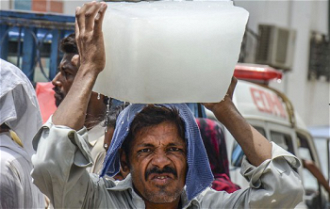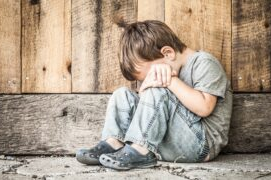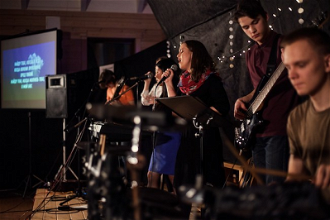Pakistan's heatwave is killing the poor and elderly

For several weeks now, Pakistan - but particularly the southern Sindh province - has been in the grip of a devastating heat wave, where temperatures were daily at 48C and 49C. Nawabshah, north of Hyderabad, registered at least 49C for four days in a row; 24 May saw the highest temperature of Pakistan's heat wave: 49.5 C in Nawabshah.
Since 20 June, Karachi, with an estimated population of 20 million, has been particularly badly hit and unable to cope. The authorities at various hospitals said on 28 June that the death toll has risen to 1,306 in Sindh - 1,214 in Karachi alone - since 20 June, with the elderly and the poor the worst affected. This is almost certainly an under estimation as those who die at home or do not come to the hospitals are obviously not included. Nazar Mohammad Bozdar, operations director at the Provincial Disaster Management Authority, said last Saturday that 65,000 heatstroke patients were treated at the city's hospitals since 20 June. Bozdar told the AP news agency on 28 June that 1,923 patients with heat-related ailments are still being treated.
Officials at the hospitals say a majority of the dead appear to come from low-income groups in addition to many beggars and homeless. The Edhi foundation says that it has already buried more than 300 unclaimed bodies in its graveyard.
The heat wave coincides with the Muslim holy dawn-to-dusk fasting month of Ramadan which began on 19 June, further worsening the situation. Some Muslim religious leaders are advising people not to fast because of the heat wave but instead to give some help to those who are suffering. The days of fasting missed can be done later when the weather is more conducive.
Fr Saleh Diego, director of the National Commission for Justice and Peace (NCJP) says that a number of Christians are among the dead. He says that repeated electricity outages are making the situation almost intolerable, with some areas without electricity for more than 12 hours daily, making it nearly impossible to find respite indoors. Munsha Noor, of Caritas Pakistan, says that Caritas staff are distributing water bottles to relief camps as well as raising awareness as to how to avoid heat stroke.
A Maltese lay missionary, Baji Miriam, who runs 'Divine Mercy Home', a center for homeless men and women suffering from mental illness, says eight patients (all Muslim) have died from heat stroke and she is really distressed about it. The Franciscan Missionary Sisters of Christ the King (FMCK) run Dar-ul-Sukun, a home for physically and mentally handicapped women and girls, and they say that a number of residents have died from heat stroke. The Catholic Holy Family hospital in Karachi has been inundated with patients suffering from heat stroke, a number of whom have died.
Heatwaves like this are in line with the predicted severe weather that go along with increasing Climate instability.
See the Columban policy statement on Climate Change at: www.columbans.co.uk/news/jpic-policy-statements-of-the-columban-missionary-society/
Fr Liam is an Irish Columban priest based in Pakistan.


















